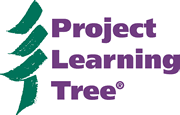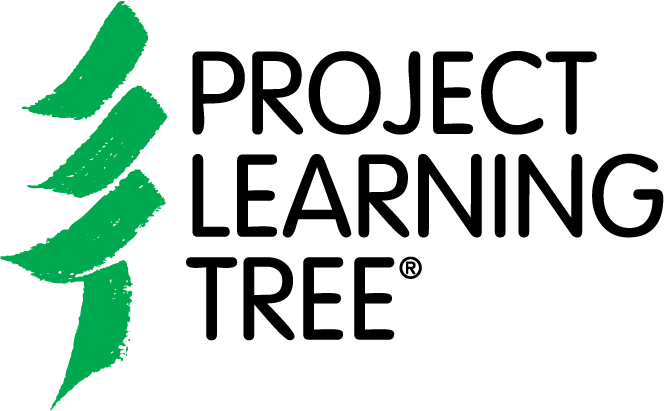On July 15, 2017, Project Learning Tree was transferred from the American Forest Foundation (AFF) to the Sustainable Forestry Initiative Inc. (SFI).
Why are SFI and PLT stronger together?
The Sustainable Forestry Initiative was selected to house PLT after a thorough review process. SFI works at the intersection of sustainable forestry, thriving communities and responsible procurement. And SFI’s community engagement programs have long included support for youth education and connecting youth to forests. PLT is aligned with SFI’s mission, vision, and key objectives, and bringing the PLT program under SFI’s umbrella will further SFI’s and PLT’s reach in ensuring today’s youth can be effective future leaders with a strong understanding of the value of responsibly managed forests, a commitment to sustainability, and the skills to make responsible decisions about the environment. PLT and SFI will also work together to engage youth in conservation activities and outdoor education.
How will this transition to SFI affect PLT’s state and international sponsors that deliver PLT programming locally?
SFI plans to maintain and support the current sponsorship of the PLT program, and will help foster community engagement between both PLT’s and SFI’s state-based programs. SFI will continue PLT’s policy and will not set mandatory fees for state PLT sponsors. This policy will be periodically reviewed by SFI & PLT staff, PLT’s Education Operating Committee (EOC) and the network to ensure that PLT continues to meet the needs of network partners.
SFI will work to grow PLT’s network, by leveraging existing PLT supporters as well as SFI’s own network. This includes universities, government agencies, youth education organizations, corporations, Indigenous peoples, landowners and brandowners – all of whom view sustainability of the forest sector and community engagement as shared objectives.
SFI will work to assure state and international MOUs can be smoothly transitioned to a partnership with SFI and will build on the language in existing MOUs. Numerous state agency lands are certified to the SFI standard, but many are not. SFI will not allow lack of certification to adversely influence SFI or PLT’s relationship with state agencies.
SFI has a wide international reach, strong global partnerships, and is experienced in making sure that the cultural and political needs are understood and respected to maintain and grow international partnerships.
SFI anticipates continuing to provide pass-through grants to PLT’s state sponsors for capacity building through the PLT Model Program Initiative at the current levels, and continuing PLT’s GreenWorks! small grants, but also plans on exploring other sources of funding to support these programs.
SFI plans to continue to hold an annual conference for PLT Coordinators that focuses on PLT initiatives, training on new programs, and sharing best practices.
What are next steps for the PLT program?
SFI will continue supporting PLT’s network, professional development, and curriculum materials. PLT’s strategic plan calls for continuous improvement and research and evaluation. SFI will continue with this model, assessing and evaluating the program, materials, professional development, and resources to have the maximum impact on PreK-12 students and their educators. Change and continuous improvement will remain a key component of the PLT program and SFI will continue to rely upon the leadership and counsel of PLT’s Education Operating Committee (EOC) and the PLT network in the evaluation and continuous improvement process. The expansion of PLT’s network of supporting partners, in both scope and geography, will present additional opportunities to be continually evaluated in the context of PLT’s strategic direction.
SFI and PLT will focus on getting PLT set up and transitioned smoothly in its existing networks and with its existing partners. Following that, SFI has identified three avenues to explore to grow the PLT program:
- Leverage SFI Implementation Committees and SFI program participants. There are 34 SFI Implementation Committees (SICs) representing close to 1,000 volunteers in 43 states and provinces who work with local conservation groups, government agencies, forestry and professional associations, aboriginal and tribal communities, landowner groups, scientists, and academics to conduct landowner outreach, educate and connect youth to nature, and support other community engagement activities to expand the understanding and connection between communities and forests. SFI will encourage relationships between a PLT state sponsor and a local SIC, although ultimately it will be up to these state-based programs how to collaborate. In 2016 alone, over 40% of SICs supported local PLT programs through time and resources, including financial contributions of more than $100,000. SFI currently engages with more than 500 unique partner organizations on conservation and community outreach projects.
- Elevate the visibility of PLT and engagement in PLT internationally. SFI hopes to expand the PLT program into more Canadian communities to result in more PLT trained facilitators and educators across North America and additional collaboration opportunities. PLT is delivered in British Columbia currently through a partnership with Habitat Conservation Trust Foundation. SFI currently works with a variety of youth organizations across Canada, including Scouts Canada, Earth Rangers, Envirothon, and Youth Connect with Forests Ontario, as well as highly regarded conservation partners that have educational programs including Ducks Unlimited Canada. SFI and PLT believe these networks will be helpful in potential expansion internationally.
- Introduce PLT to SFI’s partners that focus on indigenous education. SFI currently works with aboriginal and tribal elders to explore sustainable forestry, protect cultural heritage, and empower and connect tribal youth to their land and culture. SFI hopes to expand PLT’s engagement with this underserved community resulting in more PLT trained facilitators and educators, and the potential enrichment of PLT materials through direct engagement of indigenous cultures related to passing on traditional knowledge from elders to youth.
How will PLT continue to ensure its program is objective, balanced, and science-based?
Both PLT and SFI share the goal of objectivity. PLT curriculum is balanced, fair, and accurate, and encourages students to consider all sides and factors when making decisions about the environment. The rigorous formative and summative evaluation of all of PLT’s materials ensure the unbiased nature, classroom effectiveness, and appropriateness of PLT for teachers and students. SFI’s commitment to objectivity is reflected in its longstanding historical commitment to research (SFI’s standard is the only forest certification standard to include such a requirement), and to an independent Sounding Board and an External Review Panel to ensure credibility and transparency. PLT will be able to draw upon SFI and its network of partners as a source of science-based content and connections to the real world of forest sustainability research.
The strength of PLT’s curriculum materials and their reliance on sound science and research and unbiased learning opportunities will be continued at SFI. SFI will also establish fund development policies similar to AFF’s policies to restrict donors from dictating the terms of funding to slant PLT’s programs or materials in a particular direction.
SFI understands that there are some strict rules that need to be followed when it comes to corporate influence in the classroom in order to ensure educational integrity and the continuing use of PLT by tens of thousands of teachers each year. In addition, SFI will work with PLT’s Education Operating Committee (EOC), the PLT network, and the SFI Board to ensure that PLT’s and SFI’s brands are maintained and used in ways that support the best interests of both PLT’s and SFI’s existing programs.
SFI Standards and Rules promote sustainable forest management in North America and responsible procurement of forest products around the world. PLT does not expect to be swayed or impacted by forest certification standards set by SFI. Furthermore, SFI has never, and will never, seek to disassociate with any agency or partner based on their decision-making with regards to certification.
How will PLT’s brand be maintained under the new relationship?
SFI intends to preserve the “stand alone” value of the PLT brand and will ensure the highest degree of continued integrity for PLT. SFI will facilitate opportunities to utilize its expansive network to create opportunities for engagement and broaden use and utility of PLT. Market recognition of SFI is strong and SFI will work to ensure that it promotes the shared values of environmental education and responsible forestry.
How will PLT be represented in the governance of SFI?
SFI plans to continue PLT’s Education Operating Committee (EOC) in its current format as a means to provide guidance to the PLT program and as an advisory body to the SFI Board on educational programs and policies. SFI’s Board had voted to approve the addition of EOC co-chair Laura Downey to the Board’s Social Chamber. The current lead of PLT, currently Kathy McGlauflin, will be part of SFI’s leadership team.
Is there a financial transaction between AFF and SFI associated with the transfer of PLT?
AFF has provided a one-time transfer payment to SFI to support the program for approximately five years. SFI has agreed to use these funds solely for PLT purposes. This payment also covers the engagement of a development professional that will be devoted to raising funds for PLT.
How will SFI secure funding for PLT beyond five years?
Funding for PLT at the national level has relied heavily on AFF reserves, as well as sales of its curriculum materials, and contributions from foundations, federal grants, and individuals. SFI does not want to compromise the long-term success of the PLT program, nor hamstring SFI’s ability to carry out its other programs. As such, SFI will engage a development director to initiate a long-term fundraising plan for PLT with the goal that, after five years, PLT will no longer operate at a deficit as a result of new sources of funding.
What will happen to the current National PLT staff?
SFI looks forward to incorporating all eight of PLT staff into SFI’s team of 16 employees through an onboarding process that will be carefully designed to facilitate good working relationships and a cohesive, collaborative, and supportive larger SFI team. PLT staff will be based out of SFI’s office located in Washington, DC.

